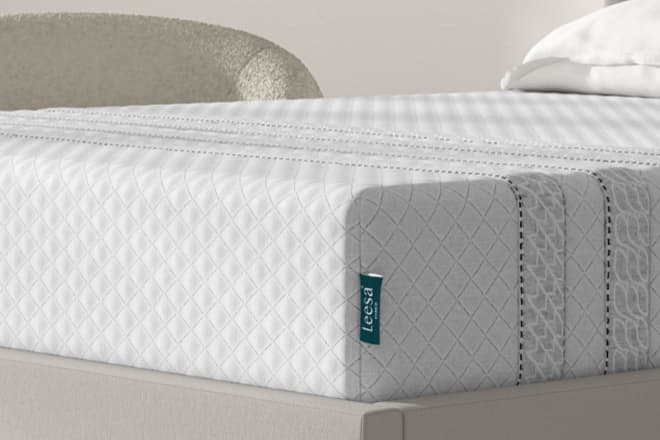Have you woken up in the middle of the night to the sound of your partner or child talking in their sleep? Or maybe you've been told that you sleep talk.
For some people, sleep talking is just an occasional thing, but for others, it can occur often. Most people who sleep talk have no idea they're even doing it. Let's talk about what sleep talking is, why it happens and the possible solutions to sleep talking if it becomes a problem.
What is sleep talking?
The scientific term for sleep talking is somniloquy. It falls into the medical category of parasomnias, which are sleep disorders that occur during transitions between sleep stages.
What sleep talkers talk about can vary from person to person and can be different from night to night. Sometimes it is short phrases, sometimes people have full conversations, sometimes it can be complete gibberish.

Studies suggest that when sleep talking occurs during light sleep, it is usually easier for other people to comprehend and when it occurs during deep sleep, it is more likely to consist of gibberish, sounds and groans.
In most cases, sleep talkers have no idea that they're sleep talking.
Do all people talk in their sleep?
Interestingly, sleep talking occurs more commonly in males and children and it can sometimes be traced to genetics.
In fact, according to the National Institutes of Health (NIH), sleep talking occurs in almost half of all children under the age of 10, occurring more often before the age of 6 and becoming less frequent as the child nears age 10.
On average, only about 5 percent of adults talk in their sleep regularly, although many adults say something random in their sleep about once every few months.
What causes sleep talking?
One of the most common reasons for sleep talking is stress (this can also have an effect on our dreams). When something is weighing heavy on the mind in our daily life, it can carry over into our sleep, causing strange dreams or nightmares and sleep talking.
Other causes for sleep talking can be sleep deprivation, illnesses and fever. Many doctors believe alcohol or substance abuse can also affect our sleep and cause sleep talking, as well as other sleep disorders.
Medical studies show that people who talk in their sleep may also be more likely to suffer from other sleep disorders, like sleep walking, night terrors, REM disorders, sleep apnea and in extreme cases, nocturnal seizures.
Are there treatment options for sleep talking?
In most cases, no treatment is necessary for sleep talking and it is something that will go away on its own. However, if it persists for a long period of time, you may want to talk to your doctor, as it could be the result of an underlying medical issue.
Sleep talking may also become a more serious issue if it's keeping your partner awake or waking them up in the middle of the night. It may keep them from getting the quality sleep they need. Try playing a sound machine at night to help drown out the sleep talking (and other external noises) to stay asleep all night and sleep better.
Simple adjustments to your daily routine can help you or your partner or child stop sleep talking, such as sticking to a regular sleep schedule and ensuring you get enough sleep each night. Doctors also recommend refraining from eating large meals or drinking alcohol right before going to sleep, since it can disrupt healthy sleep patterns.
For more helpful sleep and mattress tips and tricks, head over to our Resource Guide and learn some more interesting sleep facts.



